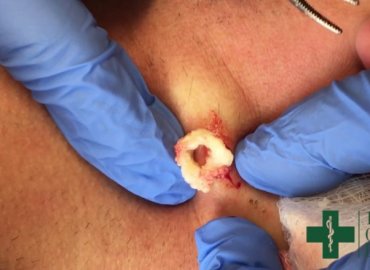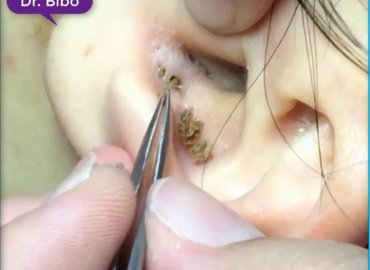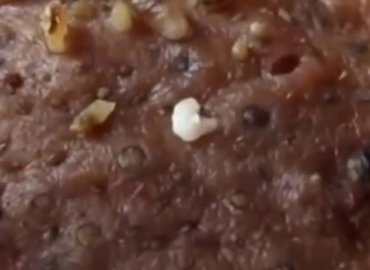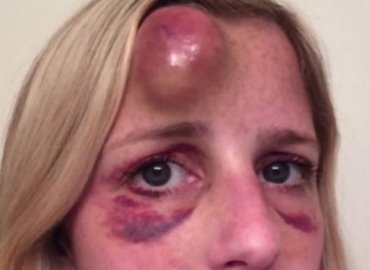Cysts are closed sac-like or capsule structures that may be filled with semisolid material, gaseous material, or liquid.
There are several causes of cysts, including genetic, infectious, and other causes that result in hundreds of types of cysts.
Risk factors for developing a cyst are related to the underlying causes of the cyst formation.
Most cysts are asymptomatic and have no signs. However, some cysts on the skin, mucous membranes, and those located in palpable organs often can be felt as a lump or bump; sometimes they are painful.
Some cysts may produce symptoms related to the organs in which they are located (for example, liver, pancreas, or kidneys).
It’s possible to diagnose cysts by palpation, ultrasound, X-rays, CT scans, MRI scans, and needle biopsies.
Most cysts do not require treatment, however, physicians may use needle aspiration or surgical removal to treat some cysts.
The prognosis for most cysts is good; a few cysts that contain malignant cells have a more guarded prognosis.
Most cysts are not preventable; those that are preventable are usually related to infectious causes.
What types of doctors treat cysts?
The type of doctor that treat cysts depend on the underlying cause of the cyst and the symptoms, if any, that are produced by the cyst. Usually a primary-care doctor is the first one who should be consulted when you notice a cyst. For example, a small epidermoid cyst that causes no symptoms would not require treatment.
However, a large cyst in the abdomen displacing internal organs would require a surgeon to remove it. Consequently, many different physician specialists may be involved (OB/GYN, surgeon, orthopedic, gastroenterologist, ENT, dermatologist, infectious disease, or oncologist, for example) depending on the cyst’s size, location, composition, and underlying cause.
What are home remedies for cysts?
Self-treatment by squeezing or popping a cyst is not advised because it could exacerbate the underlying cause in some individuals; in addition, it may cause the cyst to enlarge or become infected.
There are many home remedies for treatment of certain cyst types.
Most use topical treatments such as tea tree oil, aloe vera, castor oil, and many other compounds with the goal of rupturing the cyst. Check with a doctor before using these home remedies.







